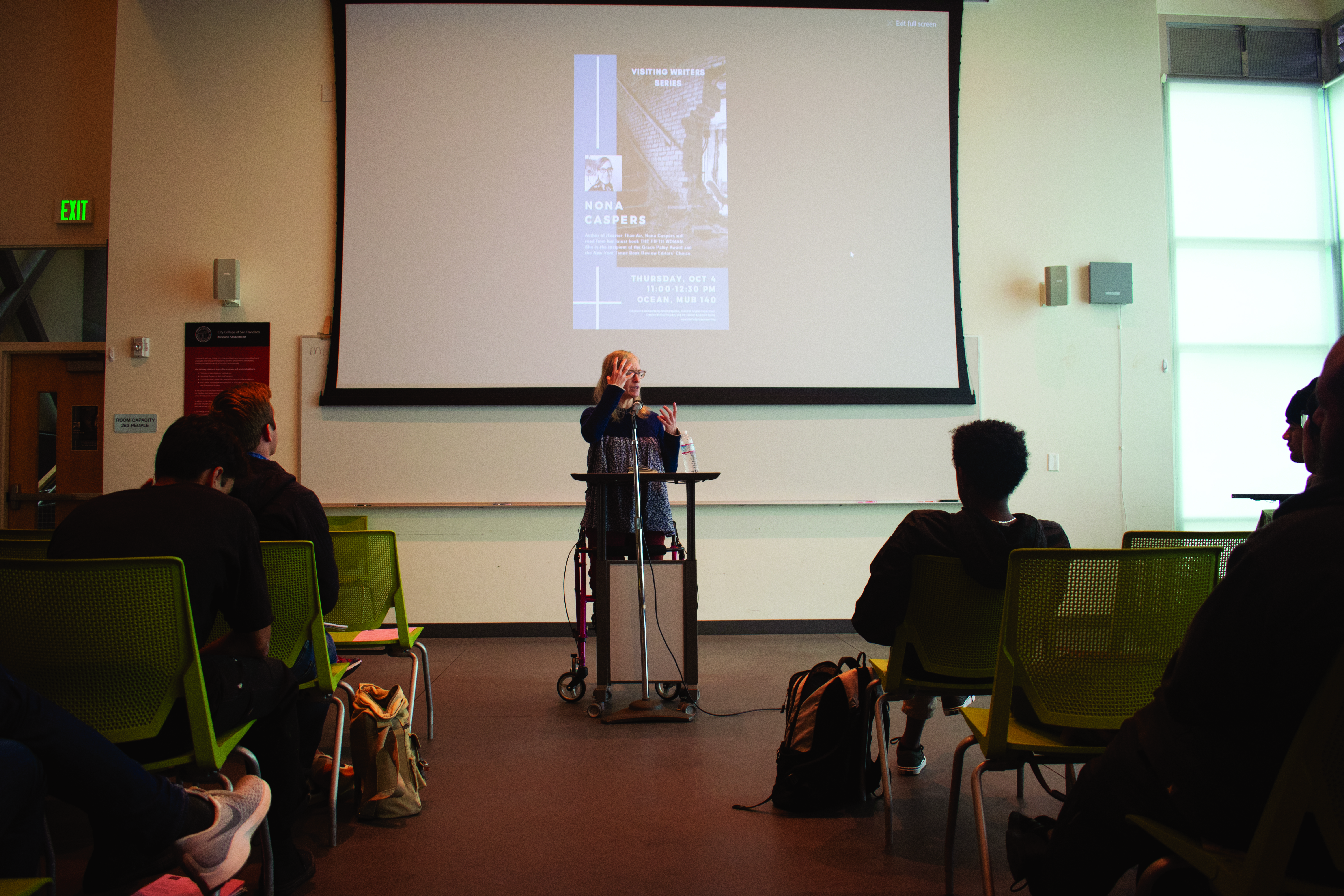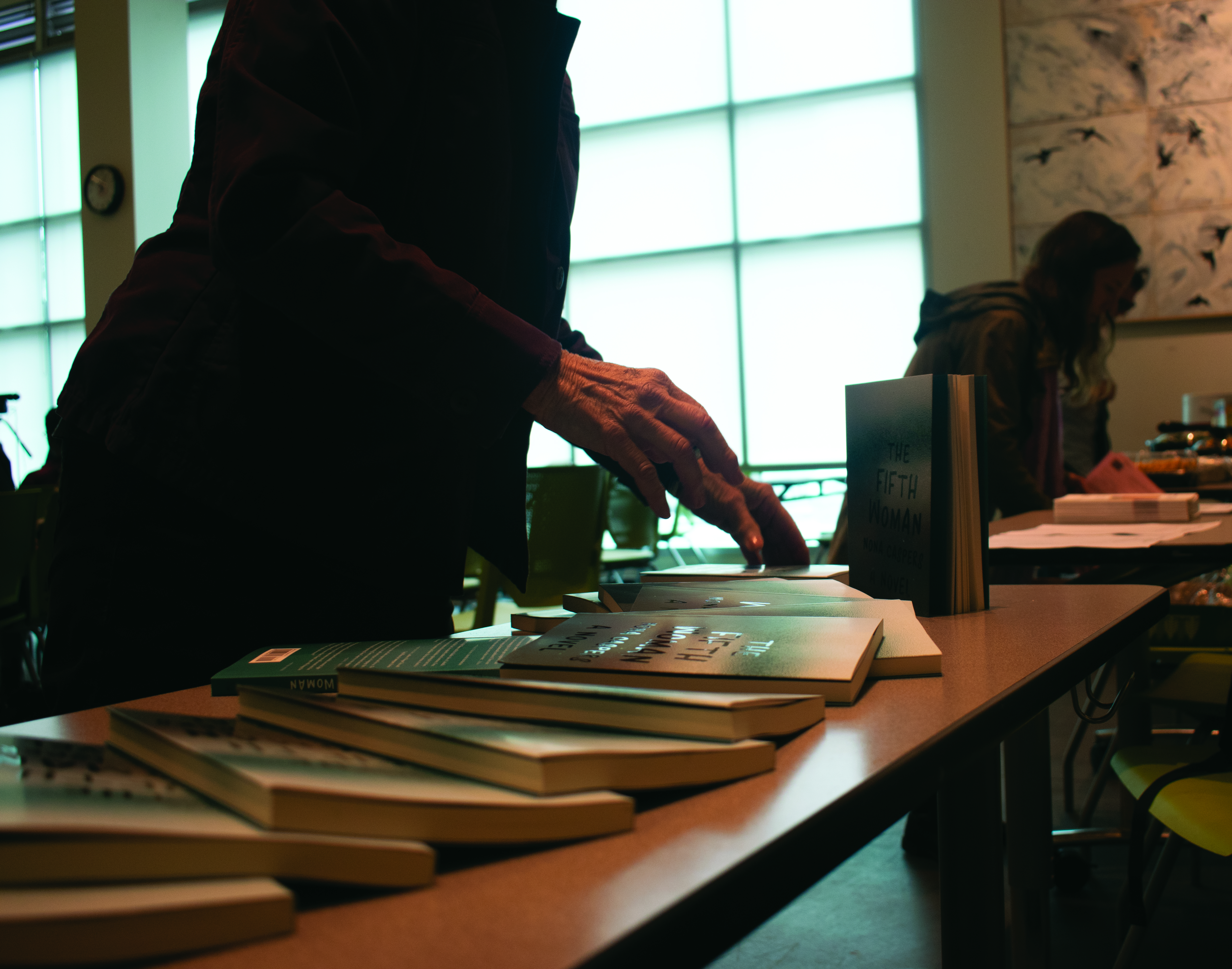Love and Loss — Nona Caspers reads from her latest novel
By Lisa Martin
Nona Caspers, author of Heavier Than Air and the Fifth Woman and winner of the Mary McCarthy prize, held a reading for City College’s visiting writers series on Thursday, Oct. 4. Caspers began by asking the audience, “so do you want to start with something that has nothing to do with your educational goals?”
She shared a song with the audience, one that she used to sing frequently with her brother and has been singing to herself lately: “Love is something if you give it away, give it away…” The audience slowly picked up the refrain as she sang.
Caspers’ latest book, the Fifth Woman, is a story about love and loss. The unnamed narrator faces loss and displacement when her girlfriend dies. The novel is told in vignettes of the grieving process and weaves in elements of magical realism.
Caspers read from the first chapter of the Fifth Woman. In it, the narrator recalls the day her girlfriend died and details the apartment they shared. The writing style is lyrical and the story moves through different elements—ants, the girlfriend, the apartment, water, the neighbors—to create a circular, dreamlike remembrance of that day.
After the reading, Caspers began a Q&A session.

When asked about how she got her inspiration, Caspers said, “I don’t wait for inspiration.” Instead of waiting for the it to strike, she keeps up a practice of writing in notebooks and paying attention to the world. She added that reading often sparks her desire to write.
Another audience member asked if the Fifth Woman was based on Caspers’ lived experiences. “It’s in there, but it’s not my lived life,” she said. “I was inhabiting and finding language for a period of time I call my deep Persephone period,” which she clarified as a period of mourning.
One student said even as a lesbian, she struggled to write about relationships between two women as opposed to heterosexual couples. She asked Caspers if she had also struggled with that, and what drove her to write her characters as lesbians.
Caspers said that it hadn’t even occurred to her to write about a man and a woman, but that one of the reasons it was easier for her not to worry about that kind of thing was because “I’m old and you are young.”
Caspers said that it was much harder for her 25 years ago as she “got very stuck on the responsibility.” She felt that there was more at stake when writing stories about people who face extra pressure from society. She didn’t want her stories to cause harm to people, and she didn’t want her own community to be put off by her work.

Back then, Caspers was personally unable to write stories about LGBTQ characters dying, because at the time it seemed like the only stories being published were ones where they died. Now there are more stories being told with LGBTQ perspectives. “People die, we die,” Caspers said. “And we mourn, and we lose.”
